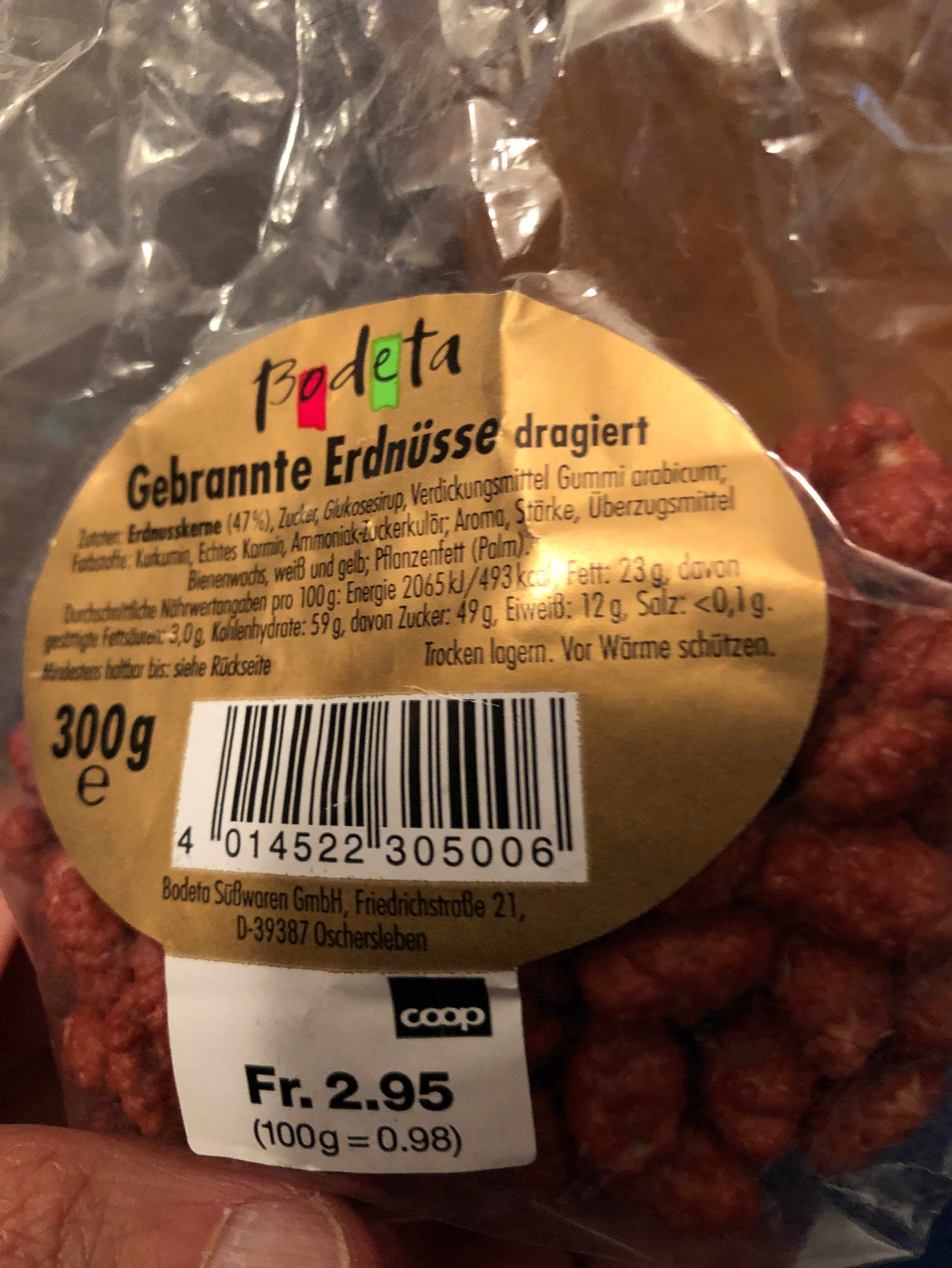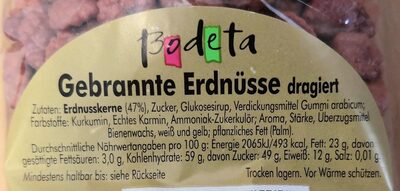Gebrannte Erdnüsse - Bodeta - 300g
This product page is not complete. You can help to complete it by editing it and adding more data from the photos we have, or by taking more photos using the app for Android or iPhone/iPad. Thank you!
×
Barcode: 4014522305006 (EAN / EAN-13)
Common name: Cacahuètes caramélisées
Quantity: 300g
Packaging: Plastic
Brands: Bodeta
Categories: Plant-based foods and beverages, Plant-based foods, Snacks, Sweet snacks, Confectioneries, Nuts and their products, Nut confectioneries, Caramelized peanuts
Manufacturing or processing places: Allemagne
Stores: COOP
Countries where sold: Switzerland
Matching with your preferences
Environment
Packaging
Transportation
Threatened species
Report a problem
Data sources
Product added on by openfoodfacts-contributors
Last edit of product page on by insectproductadd.
Product page also edited by franfris, kiliweb, musarana, packbot, yuka.sY2b0xO6T85zoF3NwEKvlkt9X4b8pAqeZhvmlR2LxoiEc4bhMP8o_arYKqs.











